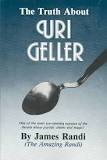Scientific materialism brings with it some rather troubling implications.
For example, that our brains are really "simply meat computers that, like real
computers, are programmed by our genes and experiences to convert an array of
inputs into a predetermined output" (Jerry Coyne, professor of biology). Or that
humans are "survival machines – robot vehicles blindly programmed to preserve
the selfish molecules known as genes" (Richard Dawkins, biologist).
I bring that up because last night I was reading an article by Aldous
Huxley on A Case For ESP, PK and PSI, which appeared in the Jan. 11,
1954 issue of Life magazine. It was a rather lengthy piece that stated the
positive case as it existed then (in the heyday of J.B Rhine). Much work has
been done since then by researchers with respectable credentials, yet the case
for PSI still remains outside the mainstream of scientific thought. (But not, I
would add, to the average person who can point to their own experiences.)
Anyway, the following paragraph from the article literally leaped from the
page at me and I knew I had the subject of my next blog post:
Our philosophy has no place for free will or for anything which
might be described as the soul. And yet, with a blessed absence of logic, we go
behaving as though we believe in the uniqueness, the paramount value of human
personality. Habit and the fact that our fundamental institutions were framed by
men who were firmly convinced of the existence of all things that "no
behaviorist has ever observed" make it quite easy for us to think one way while
acting another, incompatible way. How much longer can we continue to perform
this curious feat? One fine day some dangerously logical demagogue may ask us
why, if men and women are merely the byproducts of physical and social
processes, they should not be treated as such. After which we may expect to see
the fiction of George Orwell's 1984 turn into appalling fact.
Are we there? Have we reached the day when we are going to be treated
merely as "byproducts of physical and social progress"? Perhaps not, but some of
us fear we are inching steadily in that direction.
The reason I believe those forecasting the end of religion are mistaken is
that humans as a whole will never be able to fully embrace the worldview that
philosophers of scientific materialism (such as those cited above) so boldly
proclaim. It is too deeply ingrained in the human psyche that we are free and
aren't mere robots. The rank and file human will always sense their uniqueness
and rebel against reductionism. At least that is my prediction.
As approaching an understanding of PSI phenomena, again the rank and file
human has some sense of the transcendent. The sense that our minds are not a
byproduct but rather a direct product of the Supreme Mind which ordered the
Cosmos is basic. That would allow that there can be connections with each other,
our environment, and the Supreme Mind.
For me the acceptance of psychic phenomena serves as a kind of argument for
belief in the primacy of mind in the universe. The annals of human history are
replete with examples of premonitions, predictive dreams, spontaneous intuitive
insight, and other psychic experiences. The Universe is intelligible and our
minds are intelligent. Either that is by design or is the result of the most
astonishing coincidence (or series of coincidences) of all time.
That I am a meat computer functioning inside a larger meat machine is
something I just can't wrap my mind around. I'm sure that is true for the
majority of us. And even those who do claim to believe it often act
inconsistently. They are too uniquely human not to.










